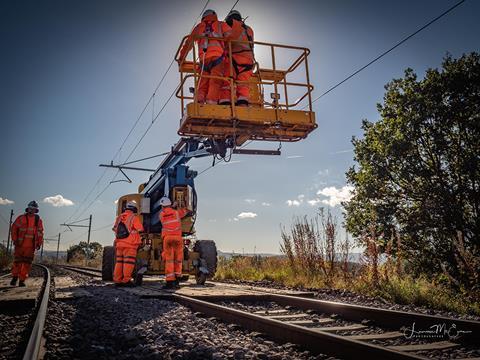
UK: To achieve its decarbonisation goals the government must electrify the rail network at a faster rate, according to the Fuelling the future: motive power and connectivity report published by the House of Commons Transport Committee.
The report published on March 2 looks across transport modes. It says rail is a naturally low-carbon transport mode, but trains in the UK still heavily rely on diesel traction. Noting that freight and high speed passenger services are the most significant challenges for decarbonising the rail sector, the report says that electrification is currently the only technology that can deliver a full range of requirements.
The lifespan of rolling stock means that rail projects currently being developed that are not wholly electrified — such as East West Rail — place in doubt the achievability of the government’s 2040 target for ending the use of diesel only-trains.
The report says electrification may not be viable on all routes, as the long-term benefits may not justify the investment cost and level of disruption caused by engineering works.
Battery electric and hydrogen may provide an answer in these cases, but neither are currently capable of delivering the power required by freight and high speed services. Biofuels may be the most viable option for decarbonising rail freight in the short and medium term.
The committee reiterates the recommendation in its previous Trains fit for the future? report that, as a matter of priority, the Department for Transport should publish a long-term strategy for decarbonising the rail network. This should include a vision for what proportion of the future network will use electrification, battery and hydrogen, supported by appropriate costings, a credible delivery plan, and enabling targets and milestones.



